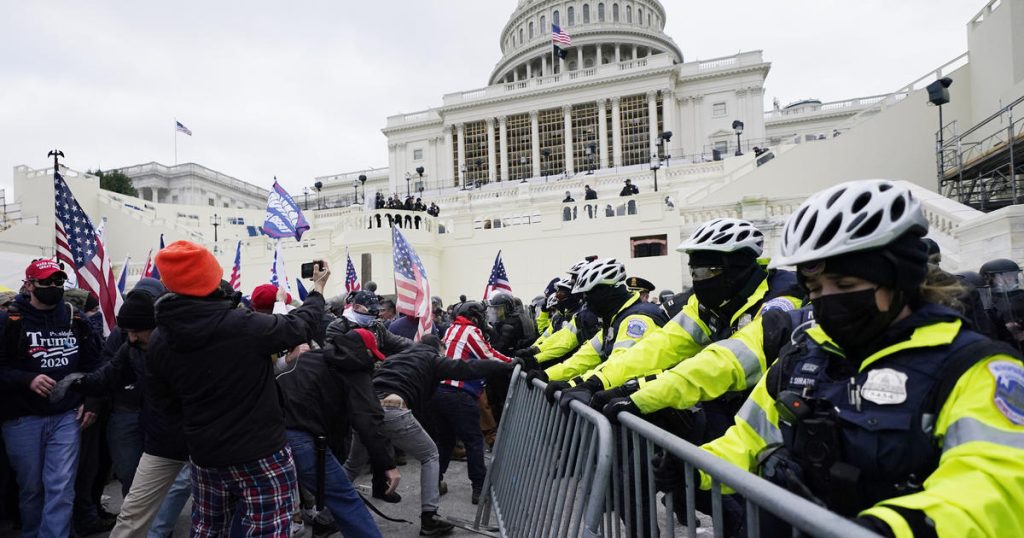The Supreme Court is set to consider the scope of a federal obstruction statute in a case stemming from the Jan. 6, 2021 attack on the Capitol, where more than 330 defendants breached the building. Former President Donald Trump is also facing charges related to obstructing Congress’ counting of the Electoral College votes, as well as conspiring to overturn the 2020 election outcome. The outcome of this legal fight could impact Trump’s case and possibly lead to the dismissal of some charges against him if the court sides with Fischer, the defendant in the current case.
Joseph Fischer, a defendant charged in connection to the Capitol breach, brought the dispute to the Supreme Court after a district judge dismissed one count of corruptly obstructing an official proceeding against him. The court of appeals ruled against Fischer, interpreting the statute more broadly and allowing prosecutors to charge individuals like Fischer, who participated in the riot without altering or destroying any documents. Fischer’s lawyers argue that the obstruction statute should be narrowed to only target evidence tampering and not all conduct that hinders an official proceeding.
Defense attorneys warn that the broad application of the obstruction law could lead to overcriminalization and unconstitutional targeting of constitutionally protected activities like lobbying or peaceful protests. However, Justice Department argues that the law is intended to prevent corrupt conduct that obstructs court, agency, and congressional proceedings. Randell Eliason, a former federal prosecutor, believes that prosecutors apply the statute only in cases where there is corrupt intent and that fears about its misuse are baseless.
The outcome of the Supreme Court’s decision in the Fischer case could have significant ramifications for other Jan. 6 defendants who have been convicted or pleaded guilty to obstruction charges. If the court narrows the application of the statute to only cover corrupt evidence-related conduct, many defendants might seek resentencing, appeal guilty pleas, or ask for new trials. This decision could also impact Trump’s case, as prosecutors argue that the charges against Trump are still valid regardless of the outcome of the Fischer case. The special counsel accuses Trump of submitting false evidence and tampering with physical evidence in the electoral vote counting process.
The Supreme Court’s decision in the Fischer case is expected by the end of June and could result in a cascade of legal challenges from defendants who have been convicted under the obstruction statute. Defense attorneys are hopeful the court will narrow the application of the law to only target evidence tampering and not simply conduct that hinders an official proceeding. The implications of this decision are significant, not just for the Jan. 6 defendants but also for the ongoing legal battles related to the events at the Capitol and the charges against former President Trump.


